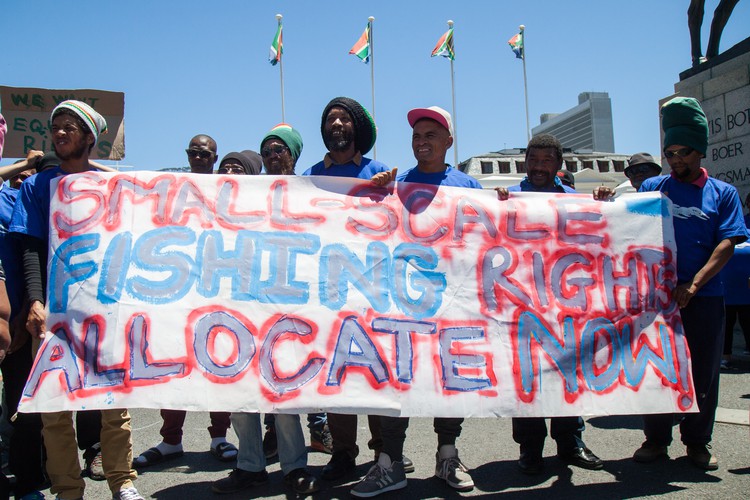We don’t have money or staff, says fisheries department
MPs told directorate can’t implement co-operatives policy
The Department of Agriculture, Forestry and Fisheries (DAFF) has admitted in Parliament it does not have the resources to support the co-operatives at the heart of government’s small-scale fisheries policy. The policy centres around co-operatives producing an alternative source of income for fishing communities through other means such as processing and marketing.
In a recent briefing by the department for MPs on progress in addressing the grievances of the small-scale fishing sector and on implementing the small-scale fisheries policy, ANC MP Andrew Madella wanted to know if there was a programme aimed at establishing cooperatives. “Or does the department expect communities to do it themselves? If there is no one taking the lead, taking communities by the hand and explaining their options, all this will remain a pipe dream. We need to concretely move towards the things we want to implement.”
Acting deputy director for Fisheries Management Asanda Njobeni admitted to MPs the department does not have the money or the personnel to support co-operatives for a full five years. Njobeni said support would be limited to a shorter time. “The reality is we don’t have the money and we don’t have the people. There are only three people in the Directorate for Small-Scale Fisheries Implementation. That means three people for a coastline of 4,000 km and over 300 fishing communities.”
According to the department, 316 small scale fishing communities have been registered along the coast. The plan is that in November and December co-operatives in the Northern Cape will be registered and allocated rights; between December 2017 and March 2018 co-operatives will be established, registered and allocated rights in the Western Cape and Eastern Cape; and KwaZulu-Natal will follow in March 2018.
DA MP Annette Steyn wanted to know if the department had the necessary buy-in from communities. “It is one thing to sit here and announce ‘we are going to do these things’. If you don’t have the support of fishing communities it will not help.” Steyn remarked on the absence of representatives of the small-scale fisheries sector at the parliamentary meeting.
Madella also referred to complaints from communities that fishermen are apparently struck off permit lists without explanation. “It seems there are officials who play judge and jury, who decide who will have an income and who not, without any reasonable explanation.”
Spokesperson for the Hout Bay Fishers Community Trust Ikram Halim told GroundUp the trust had not been informed about the briefing to parliament. He complained about a lack of communication from the department.
“They do all the talking but never properly with us. And while they talk and talk about us, our communities die of hunger. We will not be able to survive another ten years,” said Halim.
He said not everyone would benefit from the co-operatives provided for in the policy and the department should rather “take away the quotas of the big companies”.
“Big companies have been benefiting for years. It is time for some radical economic transformation in the small-scale fishing industry,” he said.
Support independent journalism
Donate using Payfast

Don't miss out on the latest news
We respect your privacy, and promise we won't spam you.
Next: Video: Harmony on Metrorail
Previous: Neighbours provide water and electricty to informal settlement
© 2017 GroundUp. 
This article is licensed under a Creative Commons Attribution-NoDerivatives 4.0 International License.
You may republish this article, so long as you credit the authors and GroundUp, and do not change the text. Please include a link back to the original article.

